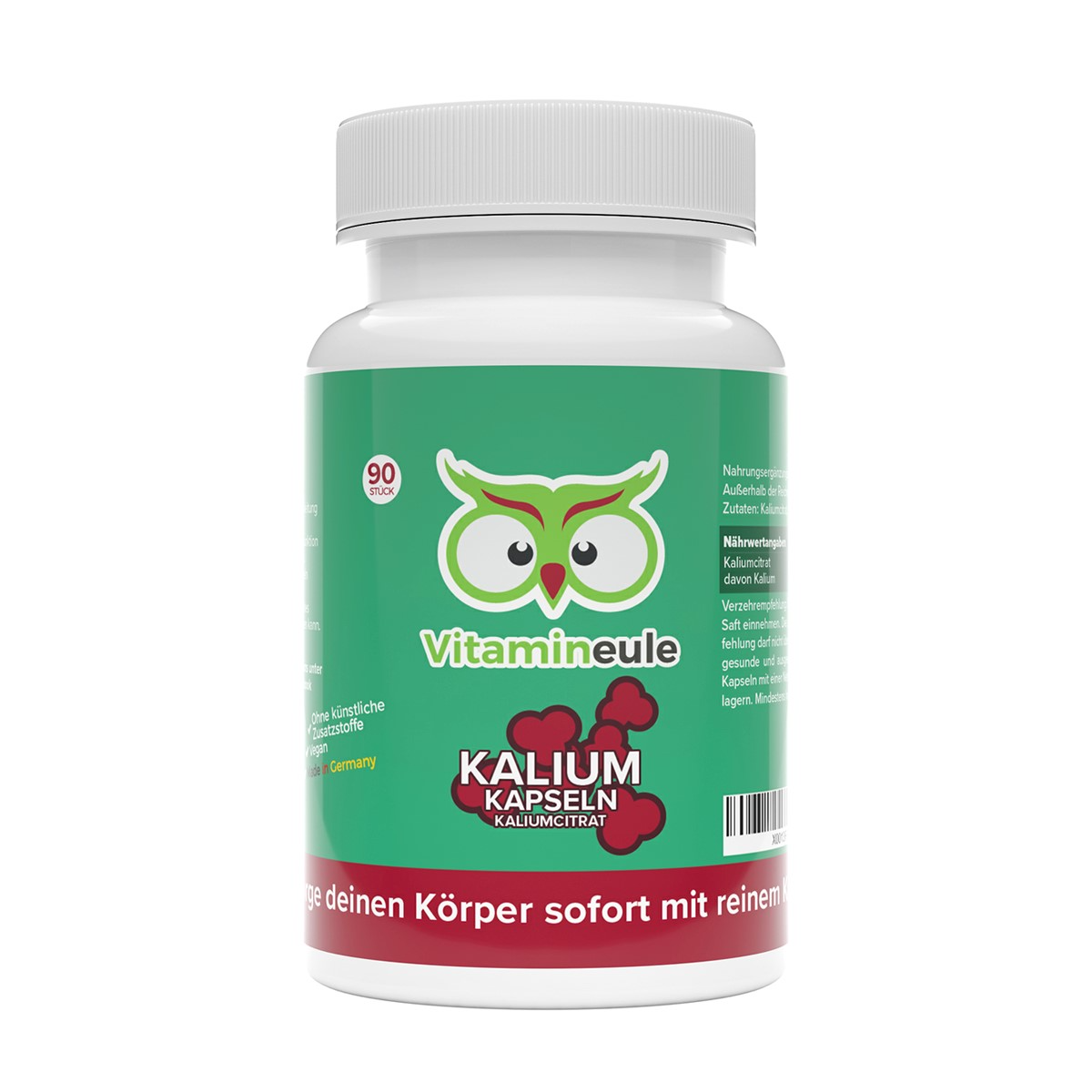
Team Vitamineule
Questions, wishes or suggestions? Just contact us by email or on Facebook.
1. what happens when potassium levels are too low?
When the potassium level in a person's blood drops, it is a potassium deficiency. Normally, potassium excretion is regulated by the hormone aldosterone. It causes the release of potassium in the urine. A potassium deficiency can have various consequences:
- Muscle weakness
- constipation
- Decreased reflexes
- increased urine excretion
2. how can I increase my potassium level?
If you suffer from a potassium deficiency, you should definitely change your diet to foods rich in potassium. Potassium is found in both animal and plant products. Supplementing potassium in the form of dietary supplements can be very helpful. On the one hand, you can quickly correct your deficiency, and on the other hand, it helps to keep your potassium level constant. There are several ways to detect low potassium levels. The best way to check your potassium level is to have your blood drawn by your family doctor.
How can I cover my potassium requirements through food?
Potassium is found in both fruits and vegetables. Fruits that are particularly rich in potassium are bananas and apricots. Vegetables such as tomatoes, avocado and carrots also contain large amounts of potassium. So do hazelnuts, peanuts, dark chocolate and almonds.
The German Nutrition Society (DGE) recommends a daily intake of about 4000 milligrams of potassium for an adult. Children up to 10 years of age need half the amount of an adult, i.e. the requirement is about 2000 milligrams. For breastfeeding women, the recommended amount of potassium is about 4400 milligrams, as they have to provide for their child through their mother's milk. In general, one should always bear in mind that height, weight and gender play an important role. Those who take enough potassium daily can prevent chronic diseases such as increased blood pressure, kidney stones and loss of bone mass.
4. dietary supplements containing potassium
If you want to increase a potassium level that is too low with a dietary supplement, you should definitely pay attention to the form of the active ingredient and its origin. Potassium capsules are particularly suitable for increasing potassium levels. They are very well tolerated and are utilized by the body to a high degree. The preparation should also not contain any chemical additives such as microcrystalline cellulose. If you buy a preparation from Germany, you can be sure that the product has also been produced safely and is of high quality.
Our recommendation:
Vitamineule® Potassium Capsules
In our online shop you will find our potassium capsules from Vitamineule®, which are completely free of artificial additives. Vitamineule® Potassium Capsules contain 200 mg of pure potassium per capsule. Each can contains 90 caps ules.In addition to fast & free shipping, we offer a voluntary six-month return guarantee on all products.
5. conclusion: what happens when the potassium level is too low?
When the potassium level in the human organism is too low, various consequences can arise. These include constipation and muscle weakness. In case of a deficiency, one should consume many foods rich in potassium. Potassium supplementation can also be very helpful. One can choose between potassium capsules and potassium tablets. Both forms are easy to use and get into the circulation quickly.

